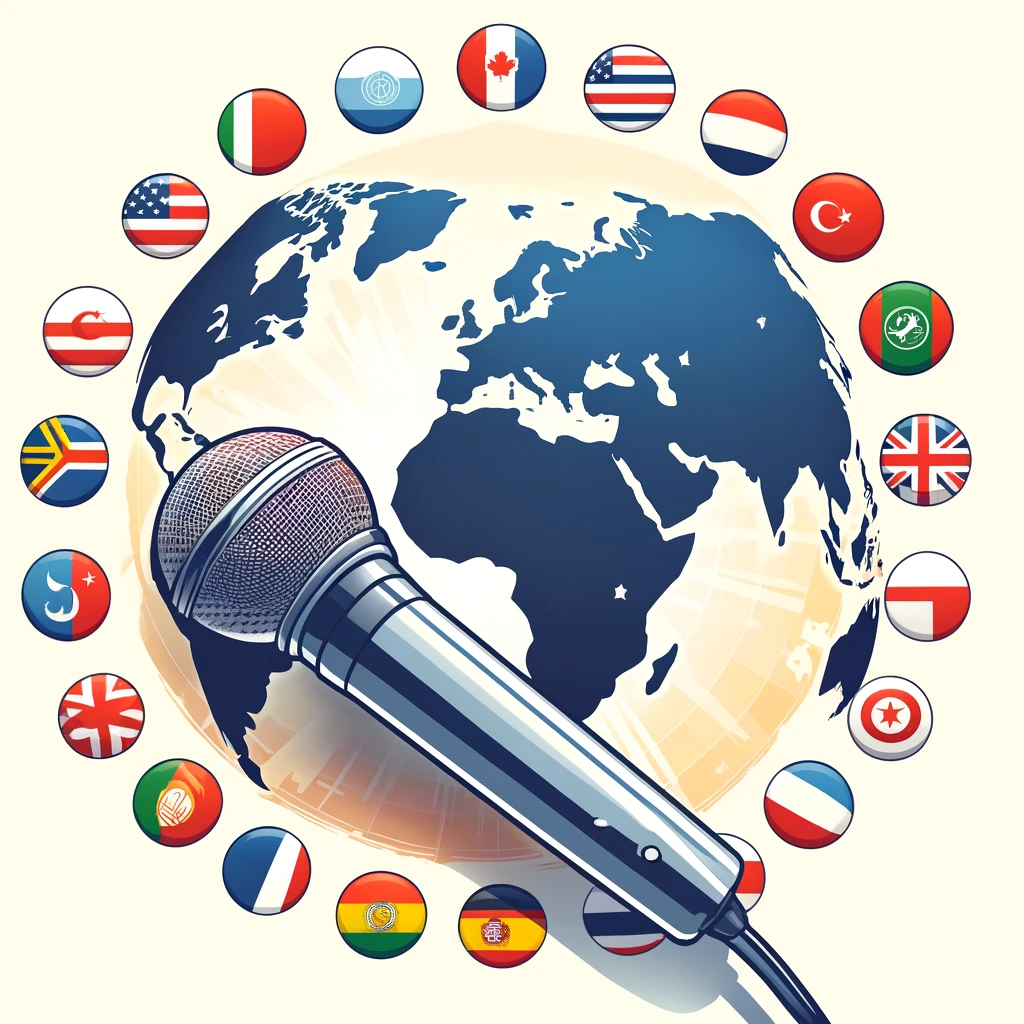Karaoke as a Cultural Ambassador
Karaoke as a Cultural Ambassador
Karaoke, a form of interactive entertainment where individuals sing along to recorded music using a microphone and public address system, transcends its roots to serve as a significant cultural ambassador globally. It brings together diverse populations, fosters cultural exchange, and promotes mutual understanding through the universal language of music.

The Role of Karaoke in Cross-Cultural Exchange
Karaoke offers a unique platform for cross-cultural exchange. By singing songs from different cultures, individuals can immerse themselves in the language, emotions, and traditions of other societies. This engagement goes beyond mere entertainment; it becomes a learning experience where participants gain insights into the cultural nuances and historical contexts of the songs they perform.
For instance, singing traditional Japanese enka songs can introduce a Western audience to the rich emotional storytelling and historical narratives embedded within this genre. Similarly, performing Latin American salsa or mariachi songs can help non-Hispanic participants appreciate the vibrant rhythms and cultural significance of these musical forms.
Karaoke as a Social Bridge
Karaoke acts as a social bridge, breaking down barriers and fostering a sense of community among participants. In multicultural cities, karaoke bars and clubs often become melting pots where people from various backgrounds come together to share their love for music. This shared activity promotes interaction and camaraderie, allowing individuals to connect on a personal level despite cultural differences.
Moreover, karaoke’s inclusive nature means that it welcomes participants of all ages, backgrounds, and skill levels. This inclusivity is particularly evident in family-oriented karaoke events and community gatherings, where music becomes a common language that unites generations and diverse groups.
Language Learning and Karaoke
One of the most notable cultural contributions of karaoke is its role in language learning. Singing songs in a foreign language can be an effective and enjoyable way to improve language skills. Karaoke enthusiasts often find that singing helps them grasp pronunciation, intonation, and vocabulary more effectively than traditional language study methods.
Language schools and cultural exchange programs frequently incorporate karaoke into their curriculum to enhance language acquisition. By engaging with music, learners not only practice their language skills but also develop an appreciation for the cultural context in which the language is used.
Karaoke and Global Pop Culture
Karaoke has also played a significant role in the globalization of pop culture. Popular songs from different countries gain international exposure through karaoke, leading to a wider appreciation of diverse musical styles. For example, K-pop’s global popularity can be partly attributed to karaoke, as fans around the world sing along to their favorite Korean hits, promoting cultural exchange and understanding.
Similarly, Western pop songs have gained immense popularity in non-English speaking countries through karaoke. This global circulation of music helps to create a shared cultural experience, fostering a sense of global community and cultural awareness.
The Economic Impact of Karaoke
The cultural influence of karaoke extends to its economic impact. The karaoke industry, comprising karaoke bars, machines, and software, is a multi-billion-dollar global market. This industry not only provides entertainment but also generates employment and stimulates economic activity in various regions.
Moreover, the popularity of karaoke has led to the emergence of related businesses, such as karaoke-themed restaurants, hotels, and cruise ships, which cater to tourists and locals alike. These businesses contribute to the local economy and promote cultural tourism, as visitors often seek out karaoke experiences as part of their travel itinerary.
Technology and the Evolution of Karaoke
Advancements in technology have significantly transformed the karaoke experience, making it more accessible and engaging. The rise of online karaoke platforms and mobile apps has democratized access to karaoke, allowing people to sing and share their performances from the comfort of their homes. These platforms often feature a vast library of songs from different cultures, further promoting cross-cultural exchange.
Virtual reality (VR) and augmented reality (AR) are also beginning to influence the karaoke landscape, offering immersive experiences that transport users to virtual concert stages or themed environments. These innovations enhance the cultural immersion aspect of karaoke, allowing users to feel as though they are performing in various cultural settings.
Final Thoughts
Karaoke, far from being a mere pastime, serves as a powerful cultural ambassador that bridges gaps between people and cultures. Through its role in cross-cultural exchange, language learning, and the globalization of pop culture, karaoke fosters mutual understanding and appreciation among diverse populations. As technology continues to evolve and make karaoke more accessible, its potential as a tool for cultural diplomacy and social cohesion will only grow. In this way, karaoke exemplifies the profound impact that music and shared cultural activities can have in bringing the world closer together.